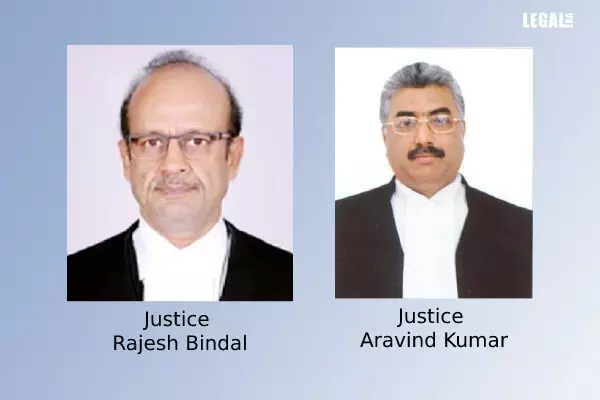- Home
- News
- Articles+
- Aerospace
- Agriculture
- Alternate Dispute Resolution
- Banking and Finance
- Bankruptcy
- Book Review
- Bribery & Corruption
- Commercial Litigation
- Competition Law
- Conference Reports
- Consumer Products
- Contract
- Corporate Governance
- Corporate Law
- Covid-19
- Cryptocurrency
- Cybersecurity
- Data Protection
- Defence
- Digital Economy
- E-commerce
- Employment Law
- Energy and Natural Resources
- Entertainment and Sports Law
- Environmental Law
- FDI
- Food and Beverage
- Health Care
- IBC Diaries
- Insurance Law
- Intellectual Property
- International Law
- Know the Law
- Labour Laws
- Litigation
- Litigation Funding
- Manufacturing
- Mergers & Acquisitions
- NFTs
- Privacy
- Private Equity
- Project Finance
- Real Estate
- Risk and Compliance
- Technology Media and Telecom
- Tributes
- Zoom In
- Take On Board
- In Focus
- Law & Policy and Regulation
- IP & Tech Era
- Viewpoint
- Arbitration & Mediation
- Tax
- Student Corner
- AI
- ESG
- Gaming
- Inclusion & Diversity
- Law Firms
- In-House
- Rankings
- E-Magazine
- Legal Era TV
- Events
- News
- Articles
- Aerospace
- Agriculture
- Alternate Dispute Resolution
- Banking and Finance
- Bankruptcy
- Book Review
- Bribery & Corruption
- Commercial Litigation
- Competition Law
- Conference Reports
- Consumer Products
- Contract
- Corporate Governance
- Corporate Law
- Covid-19
- Cryptocurrency
- Cybersecurity
- Data Protection
- Defence
- Digital Economy
- E-commerce
- Employment Law
- Energy and Natural Resources
- Entertainment and Sports Law
- Environmental Law
- FDI
- Food and Beverage
- Health Care
- IBC Diaries
- Insurance Law
- Intellectual Property
- International Law
- Know the Law
- Labour Laws
- Litigation
- Litigation Funding
- Manufacturing
- Mergers & Acquisitions
- NFTs
- Privacy
- Private Equity
- Project Finance
- Real Estate
- Risk and Compliance
- Technology Media and Telecom
- Tributes
- Zoom In
- Take On Board
- In Focus
- Law & Policy and Regulation
- IP & Tech Era
- Viewpoint
- Arbitration & Mediation
- Tax
- Student Corner
- AI
- ESG
- Gaming
- Inclusion & Diversity
- Law Firms
- In-House
- Rankings
- E-Magazine
- Legal Era TV
- Events
Collegium recommends two more judges to Supreme Court

Collegium recommends two more judges to Supreme Court
With a sanctioned judicial strength of 34, it has 7 vacancies
The Supreme Court Collegium led by Chief Justice of India DY Chandrachud has recommended to the Central government, the names of the Allahabad High Court Chief Justice Rajesh Bindal and Gujarat High Court Chief Justice Aravind Kumar for appointment as apex court judges.
The collegium maintained that it had recommended the two names for judgeships after a "meaningful discussion on an assessment of their judicial acumen" through examination of their judgments and careful evaluation of their merit, integrity, and competence.
The collegium includes Justice Sanjay Kishan Kaul, Justice KM Joseph, Justice MR Shah, and Justice Ajay Rastogi.
However, the collegium's December 2022 recommendation on Justice Pankaj Mithal, Justice Sanjay Karol, Justice PV Sanjay Kumar, and Justice Ahsanuddin Amanullah is still pending with the government.
Meanwhile, Chief Justice Chandrachud recently told a lawyer who had sought an early hearing of his case, "Where are the judges….let us wait for some more judges."
In its four-page resolution, the collegium has given no room for the government to tinker with seniority among the seven judges by bifurcating their names or by appointing one over the other.
It mentioned, "The names recommended earlier by the collegium by its 13 December 2022 resolution shall have precedence over the two names (Justice Bindal and Justice Kumar). Therefore, the appointments of five judges should be notified separately and earlier in point of time before the two judges recommended by this resolution."
Earlier, while the appointment of Justice Bindal was 'unanimous', Justice Joseph had felt that Justice Aravind Kumar could be considered at a later stage. The collegium reasoned that Justice Bindal was number two in the All-India seniority of high court judges and was the senior-most judge from the Punjab and Haryana High Court.
The collegium stated, "While recommending his name, the collegium has taken into consideration the fact that the Punjab and Haryana High Court, one of the largest high courts with a sanctioned strength of 85 judges, is not adequately represented on the bench of the Supreme Court. It is a common high court for two states."
Justice Bindal is due to retire on 15 April 2023. However, if his appointment to the top court gets through, he would continue till the age of 65.
On the other hand, Justice Aravind Kumar is number 26 in the All-India seniority of high court judges. He is the second senior-most judge in the Karnataka High Court.



